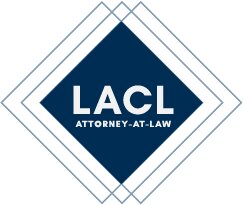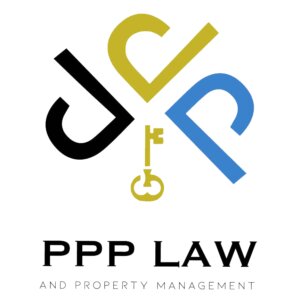Best Energy Regulatory Law Lawyers in Huai Khwang
Share your needs with us, get contacted by law firms.
Free. Takes 2 min.
List of the best lawyers in Huai Khwang, Thailand
About Energy Regulatory Law in Huai Khwang, Thailand
Energy Regulatory Law in Huai Khwang, a vibrant district in Bangkok, is governed under Thailand’s national legal frameworks for energy management and regulation, as well as certain municipal rules. The Electricity Generating Authority of Thailand (EGAT), the Energy Regulatory Commission (ERC), and the Metropolitan Electricity Authority (MEA) are some of the key organizations overseeing the generation, distribution, and regulation of energy (including electricity, natural gas, and renewable energy sources). Local policies aim to balance the need for reliable energy supply with environmental protection and fair competition, keeping in line with national energy strategies.
Why You May Need a Lawyer
Energy Regulatory Law is a complex area, and people or businesses in Huai Khwang may need a lawyer for several reasons:
- To secure permits or licenses for energy development or utility connection
- If facing disputes over energy billing, service interruption, or tariffs
- To negotiate energy-related contracts or agreements
- If subject to enforcement or penalties from energy regulators
- To navigate environmental compliance for energy projects
- For legal advice about renewable energy investments or installation
- In case of participation in governmental energy programs or incentives
- To ensure compliance with both national and local energy laws
Because energy law entwines with other regulations (such as environmental and urban development rules), engaging an experienced lawyer can help protect your rights and avoid costly mistakes.
Local Laws Overview
Huai Khwang, as part of the Bangkok Metropolitan Region, follows the central Thai energy regulations set forth by the Energy Regulatory Commission (ERC), Energy Ministry, and relevant agencies. Key aspects include:
- Licensing requirements for energy providers or producers (including rooftop solar or small-scale generation)
- Rules surrounding the distribution and sale of electricity and gas
- Regulation of energy tariffs, service standards, and consumer protections
- Environmental and safety compliance for energy projects, especially those near residential or commercial zones
- Policies for integrating renewable energy into local systems
Local authorities may have specific guidelines for installing energy systems in new buildings, connecting to the municipal grid, or dealing with noise and emissions. Adhering to both national and local requirements is essential to avoid delays or sanctions.
Frequently Asked Questions
What government body oversees energy regulations in Huai Khwang?
The Energy Regulatory Commission (ERC) is the primary regulator for energy matters in Thailand, including Huai Khwang. Utility service providers like the Metropolitan Electricity Authority (MEA) enforce and administer the regulations at the local level.
Do I need a permit to install solar panels on my property?
Yes, in most cases, you must obtain approval or a permit from local authorities and the MEA before installing solar panels, especially if you plan to feed electricity back to the public grid.
What should I do if my energy service is unfairly disconnected?
You can file a complaint with the MEA customer service or the ERC. A legal advisor can guide you on documentation and the official complaint process to ensure proper resolution.
Are energy tariffs regulated?
Yes, the ERC regulates energy tariffs to ensure fairness and transparency. Any tariff changes proposed by energy providers must be approved by the ERC.
What environmental laws might apply to energy projects?
Projects may be subject to environmental impact assessments and must comply with regulations from the Ministry of Natural Resources and Environment, especially if they affect air, noise, or water quality.
How does the law address renewable energy in Huai Khwang?
Thailand encourages renewable energy through specific support schemes and regulations. Local residents or businesses can participate in government programs for solar, wind, and other sustainable energy methods, but must adhere to both technical and legal requirements.
Can foreign investors participate in energy projects in Huai Khwang?
Yes, but they must comply with Foreign Business Act restrictions and may need Thai partners or special licenses for certain activities. Legal counsel is crucial for foreign investment planning.
What is the process for resolving disputes with an energy provider?
Most disputes begin with a formal complaint to the provider, followed by possible mediation or arbitration through the ERC or other appointed bodies if resolution is not achieved.
Are there penalties for unauthorized energy use or installations?
Yes, unauthorized connections or installations, electricity theft, or non-compliance with energy regulations can lead to fines, legal action, and disconnection of service.
Who can help me understand the energy codes for a new business in Huai Khwang?
A qualified energy regulatory lawyer with experience in local compliance can guide you through all applicable codes, licensing, and best practices for your business.
Additional Resources
Here are some valuable resources for those needing more information or legal help:
- Energy Regulatory Commission (ERC) - The national authority overseeing energy regulation
- Metropolitan Electricity Authority (MEA) - Local electricity provider for the Bangkok area, including Huai Khwang
- Ministry of Energy - Government ministry responsible for shaping energy policy and guidelines
- Ministry of Natural Resources and Environment - For environmental compliance and impact assessments
- Local law firms and legal aid clinics specializing in energy and environmental law
- Thailand Board of Investment (BOI) - For foreign investors seeking guidance on energy projects
Next Steps
If you need legal assistance in Energy Regulatory Law in Huai Khwang, here is what you should do next:
- Identify your specific legal problem or question (licensing, dispute, investment, etc.)
- Gather all related documents, such as contracts, correspondence, permits, or official notices
- Consult with a local lawyer experienced in energy regulations to review your case and explain your options
- Contact the relevant regulatory body (ERC, MEA) if your issue requires their direct involvement or complaint process
- If you are a foreign entity or investor, confirm your eligibility and compliance requirements with a legal specialist
- Stay informed about local and national energy policy developments that may affect your case or plans
Dealing with energy regulatory matters can be complex, but with the right information and professional help, you can navigate the process smoothly and protect your interests.
Lawzana helps you find the best lawyers and law firms in Huai Khwang through a curated and pre-screened list of qualified legal professionals. Our platform offers rankings and detailed profiles of attorneys and law firms, allowing you to compare based on practice areas, including Energy Regulatory Law, experience, and client feedback.
Each profile includes a description of the firm's areas of practice, client reviews, team members and partners, year of establishment, spoken languages, office locations, contact information, social media presence, and any published articles or resources. Most firms on our platform speak English and are experienced in both local and international legal matters.
Get a quote from top-rated law firms in Huai Khwang, Thailand — quickly, securely, and without unnecessary hassle.
Disclaimer:
The information provided on this page is for general informational purposes only and does not constitute legal advice. While we strive to ensure the accuracy and relevance of the content, legal information may change over time, and interpretations of the law can vary. You should always consult with a qualified legal professional for advice specific to your situation.
We disclaim all liability for actions taken or not taken based on the content of this page. If you believe any information is incorrect or outdated, please contact us, and we will review and update it where appropriate.













